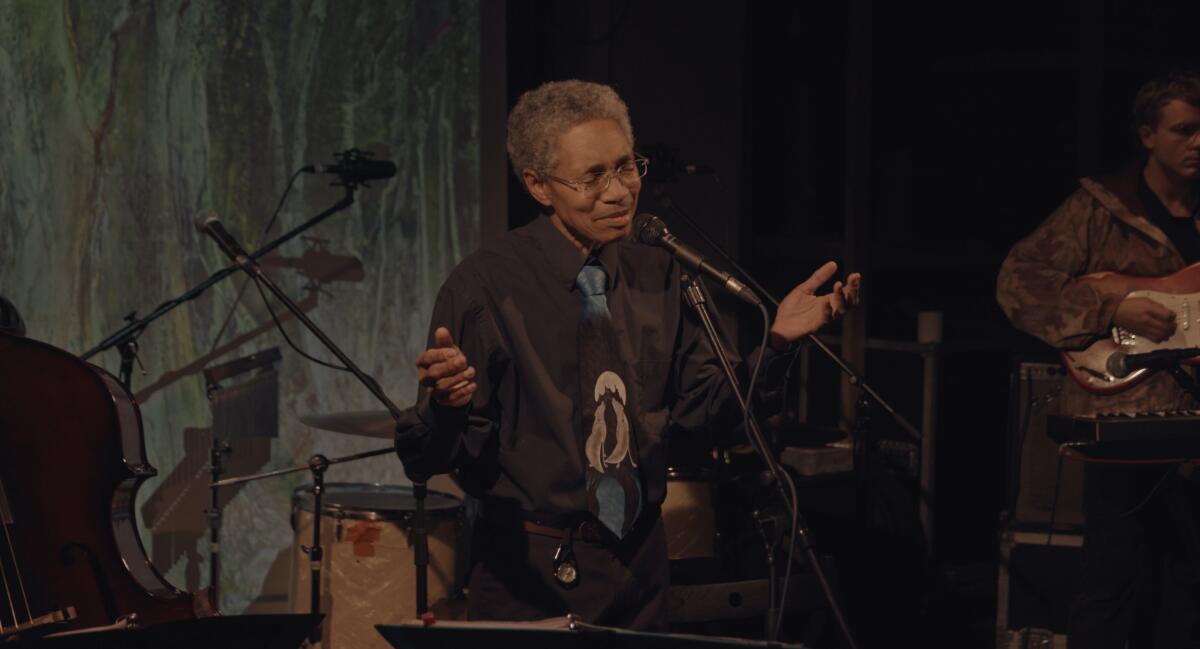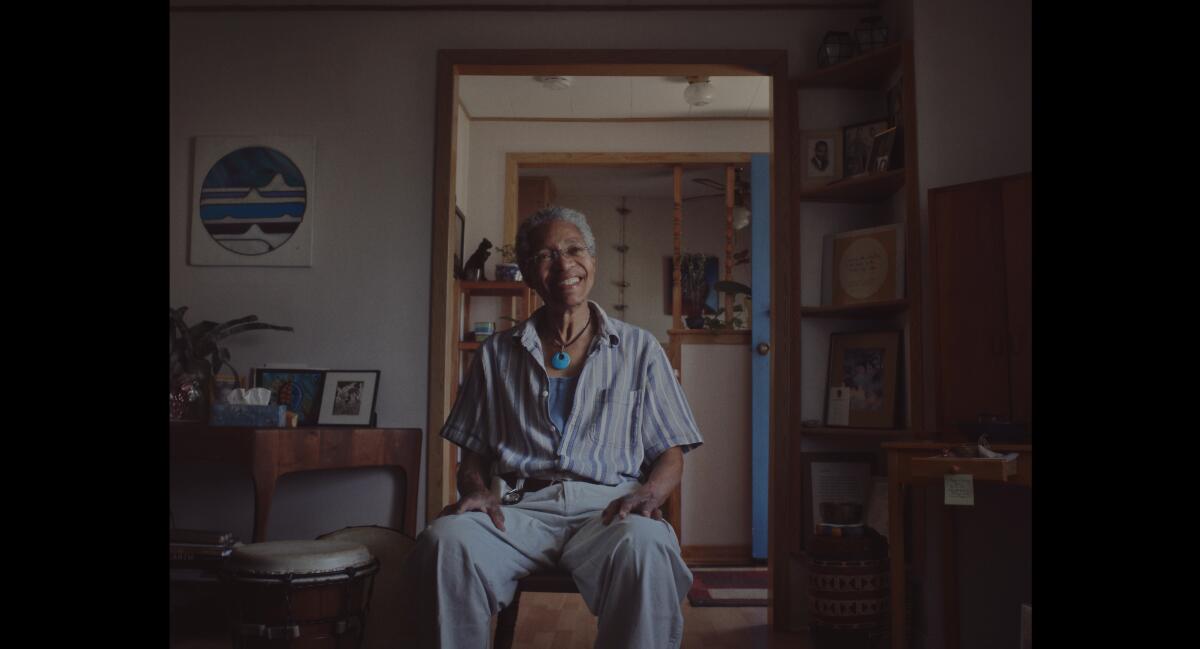Review: In ‘Keyboard Fantasies,’ legendary musician Beverly Glenn-Copeland gets his due

The Times is committed to reviewing theatrical film releases during the COVID-19 pandemic. Because moviegoing carries risks during this time, we remind readers to follow health and safety guidelines as outlined by the Centers for Disease Control and Prevention and local health officials.
Criminally unappreciated in the 1970s and ’80s when they were first recorded, and rediscovered decades later by record collectors and music lovers, the songs of folk-electronica singer and songwriter Beverly Glenn-Copeland arrived in recent years like transmissions from the past — as if sonic acts of love had traversed time and space with their yearning melodies and syncopated rhythms, searching for the audience they were meant to find.
Exhilarating as the Canadian American musician’s late bloom has been to the music world, the full picture of his life, as captured tenderly by filmmaker Posy Dixon in “Keyboard Fantasies,” is even more poignant and remarkable. (Made in 2019, the film is now in theaters and on digital and VOD via Greenwich Entertainment.)
From his childhood in a Black middle-class Quaker family in 1940s Philadelphia, where his father played classical piano and his mother sang spirituals, to the bigotry that later led to his leaving university in Montreal, where he was not yet living authentically in his trans identity, “Keyboard Fantasies” tracks Glenn-Copeland’s evolution through his own memories, music and gregarious sit-down interviews.
Voices from his past testify to the many ways the world, for much of his life, hadn’t been ready for someone like him — a singular artist impossible to fit into any one box. Songs from his first two self-titled albums recorded in 1970, such as the plaintive “Colour of Anyhow,” position Glenn-Copeland musically among the folk-jazz scene of the era and reflect the themes of love, pain and light that marked his early music. But it wouldn’t be until after failing to gain traction in the industry that he’d record the album widely considered his masterwork.
Inviting the camera into his home in rural Canada, where he lives with his family surrounded by the nature that inspires him, Glenn-Copeland, 77, scrolls through the 2015 email that changed everything: a message from Japanese music collector Ryota Masuko, who had stumbled across the musician’s “Keyboard Fantasies” album, originally self-released on cassette in 1986, and wanted to know if there was any surviving stock.

Soon demand for Glenn-Copeland’s recordings led to reissues of his early work and “Keyboard Fantasies,” recorded on a Yamaha DX-7 and Roland TR-707 in his home studio, quickly made him a cult icon. Suddenly embraced by an international audience in his elder years, Glenn-Copeland — who also wrote for “Sesame Street” and worked on the popular Canadian children’s TV show “Mr. Dressup” — found himself presented with a new unforeseen path.
In that, he says, he found purpose. “Keyboard Fantasies” follows as he embarks on the biggest tour of his life, playing shows in Europe and Canada with a backing band of young musicians with whom he shares a vibe of expansive creativity and mutual adoration. (On the new release “Keyboard Fantasies Reimagined,” artists like Bon Iver and Blood Orange revisit and rework songs from the original album.) In their shows, new shades of meaning and inspiration emerge in Glenn-Copeland songs like “Ever New,” “Sunset Village” and the spiritual “Deep River.”
And beyond Glenn-Copeland’s magnetic onstage presence and rich, sonorous, still-flawless vocals, it’s the candid moments in which he dances to the music, riffs on spontaneous beats in between sets and shares meals on the sidewalk with his younger bandmates that leave a hopeful grace note on Glenn-Copeland’s legacy. (For further viewing, seek out the 2017 short documentary “The Lake Sutra” by Naomi Okabe.)
“Find the people who will tell you how precious you are,” Glenn-Copeland says in an emotional moment of clarity and gratitude, having finally found the willing ears and open hearts his music had been seeking. “Find a practice that will tell you how precious you are … that’s not easy, but it’s possible.”
'Keyboard Fantasies: The Beverly Glenn-Copeland Story'
Not rated
Running time: 1 hour, 10 minutes
Playing: Laemmle Glendale; also available on digital and VOD
More to Read
Only good movies
Get the Indie Focus newsletter, Mark Olsen's weekly guide to the world of cinema.
You may occasionally receive promotional content from the Los Angeles Times.











